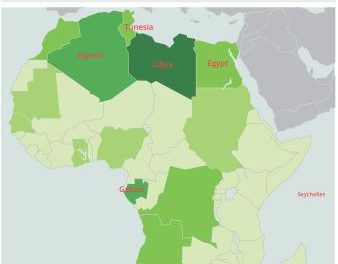
Climate Fund bankrolls EIF
The Environmental Investment Fund is busy preparing six project proposals that will be submiteed to the US$100 billion Green Climate Fund later in the year.
The Minister of Environment and Tourism Hon. Phohamba Shifeta speaking on the Climate Change Confererence and the Convention to Combat Deserification held last year, told the National Assembly this week that the legally binding treaty will enter into force come 2020.
The Green Climate Fund is expected to become the main global fund for climate change finance. The Environmental Investment Fund of Namibia is tasked with handling funds from the Green Climate Fund.
Shifeta said to his colleagues that the country is the most advanced with regard to implementing the concept of land degradation neutrality, having been one of 14 countries to be involved in a pilot project on these issue.
“We have completed phase I of this project and now have targets in place for Namibia to be land degradation neutral by 2040. Phase II of this project, which will implement on-the-ground interventions, commenced in February 2016.” Shifeta said.
The Paris Agreement adopts Nationally Determined Contributions (NDCs) as the main vehicle for identifying national targets and priorities in mitigating and adapting to climate change. The country developed and submitted its first Intended Nationally Determined Contributions (INDC) to the United Nations Framework Convention on Climate Change (UNFCCC) in 2015. This document contains a commitment to reduce the country’s Greenhouse Gas emissions by 89% of the projected emissions by 2030.
This involves a range of strategic targets and actions to reduce emissions in sectors such as energy as the country moves towards renewable energy and cleaner transport, the adoption of cleaner technologies in industrial production and processes which from part of a suite of actions in the agriculture, forestry and land use sector. The recycling of municipal solid waste and wastewater sludge will also be included.
Hon Shifeta said that the agreement is of critical importance to the arid country’s future development as it signals a move to end the use of fossil fuels and ushern in a new era of development based on green technologies.
“This will have a major impact on the way business is done across the world and I believe we are now poised for massive investment into technologies linked to renewable energy, sustainable transportation systems, water supply and managment and alternative approaches to waste managment” he said, emphasising that each of these areas can make a major contribution to Namibia’s national development.
Under the Paris Agreement, Namibia must submit a Nationally Determined Contributions document to the Convention every five years. These Nationally Determined Contributions are expected to be progressive in ambiiton so that the global temperature reduction goal can be reached.










































